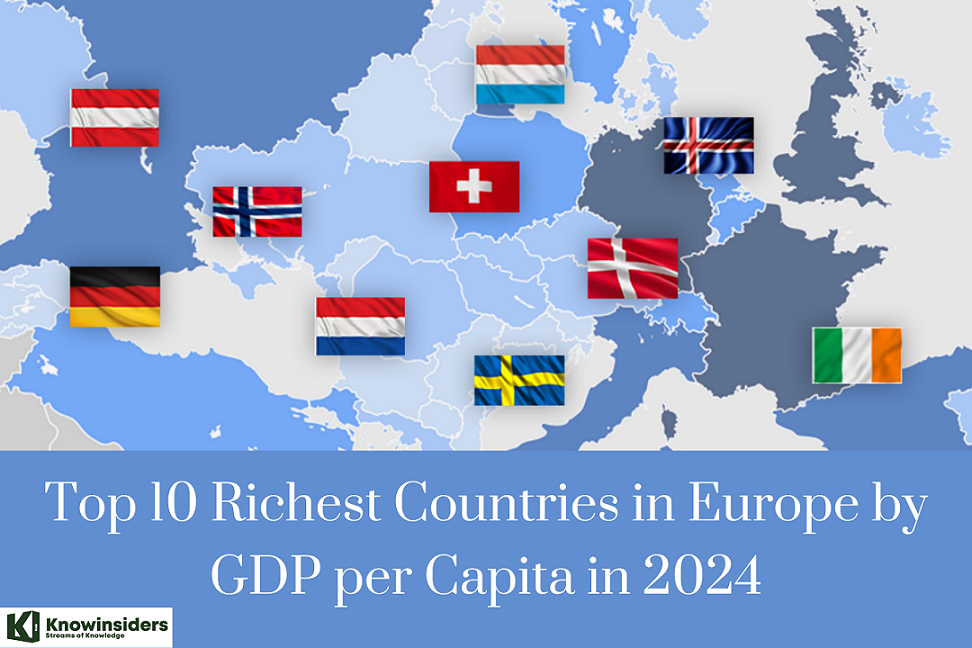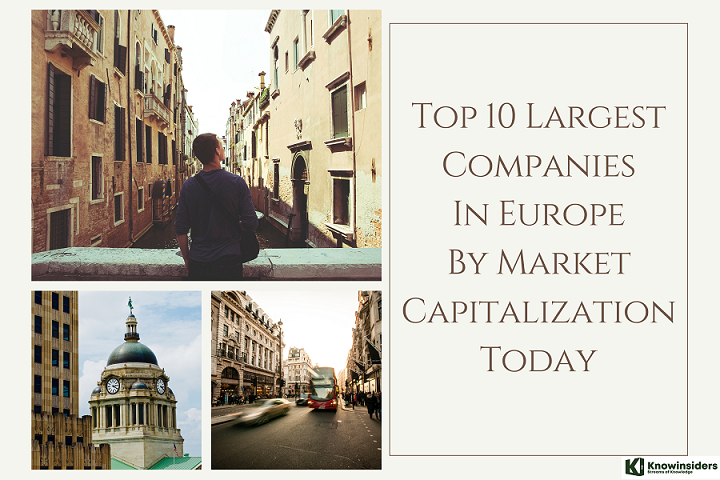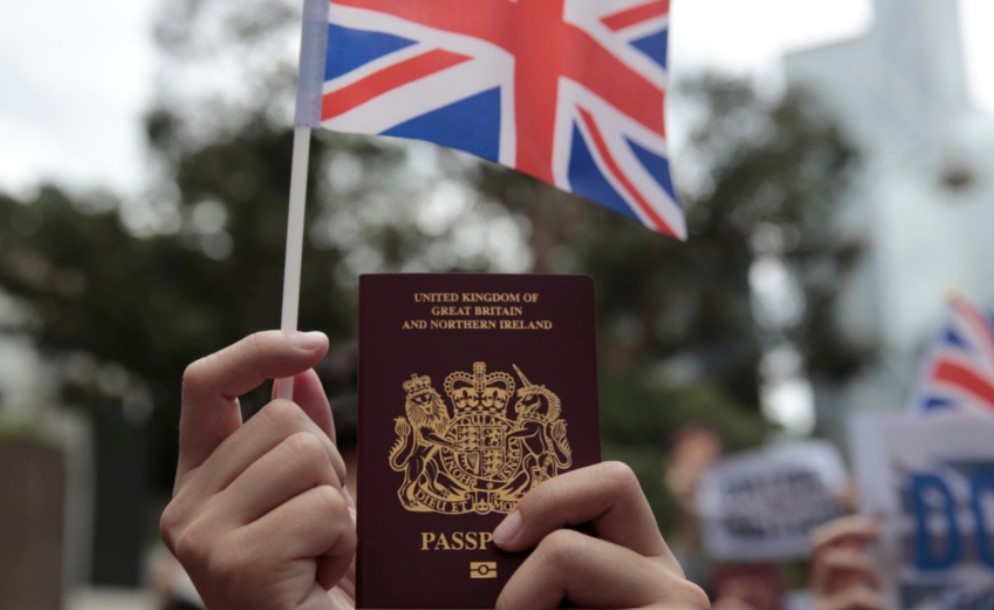Top 10 Largest European Economy by GDP Today
| Table of Contents |
The Gross Domestic Product (GDP), which calculates the total value of all the goods and services produced by a nation over a specified time period (usually a year), is the most widely used basic indicator of national wealth. The combined GDP of the top six European nations was over $1 trillion (US dollars) in 2024, totaling a total of $13.833 trillion (US dollars). Europe's financial leaders are now among the world's most productive nations as a result of these developments.
These ten countries highlight the economic diversity and resilience of Europe. Each nation’s unique combination of industries, resources, and strategies contributes to its status on the continent and the broader global economy.
 |
| Top 10 Europe's Countries With The Largest Economy by GDP Today |
Top 10 Europe's Countries With The Largest Economy by GDP Today
1. Germany
GDP: $4.4 trillion
Germany stands as Europe's largest economy with a GDP of $4.5 trillion. Known for its engineering, automotive, and manufacturing prowess, Germany's economy benefits from a high level of industrial productivity and a robust export sector. Germany is known for its precision in the engineering, automotive, chemical, and pharmaceutical industries, and its economy is heavily focused on exports. It benefits from having a skilled workforce, strong R&D programs, and a strong commitment to innovation promotion.
2. United Kingdom
GDP: $3.3 trillion
With a GDP of $3.3 trillion, the United Kingdom maintains a strong position despite post-Brexit trade uncertainties. The economy is significantly driven by financial services, particularly in London, as well as pharmaceuticals and aerospace. The manufacturing, financial, creative, and service sectors make up the United Kingdom's economy. London serves as a global financial hub that attracts foreign capital. Globalization and the UK's trade alliances also influence the country's economic growth.
3. France
GDP: $3 trillion
France’s economy, valued at $3 trillion, exhibits strengths in tourism, manufacturing, and agriculture. France's economy is characterized by diversification, with a focus on high-end goods, tourism, aerospace, and agriculture. France is known for its extensive investment in R&D, sophisticated infrastructure, and strong social welfare system.
4. Italy
GDP: $2.1 trillion
Italy, with a GDP of $2.1 trillion, has a diverse industrial base, particularly in the north, and is famous globally for its automotive, machinery, and fashion industries. Italy has a highly developed market. The country is renowned for its hardworking and fiercely competitive agriculture sector as well as its powerful and innovative business sector.
5. Russia
GDP: $1.8 trillion
It is difficult to imagine Russia's size. Covering all of northern Asia and a large portion of Eastern Europe, it is the largest country in the world by land mass, almost twice as large as Canada, the second-largest country in the world. It borders both Japan and the United States on land and more than a dozen countries on the sea.
Russia’s economy is heavily influenced by its vast natural resources, primarily oil and natural gas. With a GDP of $1.8 trillion, the country remains a major player in global energy markets.
6. Spain
GDP: $1.5 trillion
The Kingdom of Spain, which was formed in 1492 by the union of several independent kingdoms, is a cultural patchwork that continues to influence the dynamic identity of the country today. Much of the Iberian Peninsula, which Portugal and Spain share on the southwest tip of Europe, is part of Spain. It also comprises two enclaves in North Africa, the Canary Islands in the Atlantic Ocean, and the Balearic Islands in the Mediterranean Sea.
Spain’s economy, with a GDP of $1.5 trillion, is notably driven by services, particularly tourism, which is among the most vibrant in Europe. Additionally, the automotive and agricultural sectors are significant contributors to its GDP.
7. Netherlands
GDP: $1.0 trillion
The Netherlands boasts a GDP of $1.0 trillion, with major contributions from international trade, banking, and chemicals. The country’s strategic location and highly developed transport network underpin its strong logistics and distribution sectors. The nation is renowned for having one of the busiest ports in the world, Rotterdam Port, and for having robust financial and international trade sectors. The Netherlands also boasts a high standard of living, a booming tourism sector, and a workforce with a high level of education. The nation has first-rate social welfare and healthcare systems.
8. Switzerland
GDP: $905.68 billion
Known for its financial services and high-tech manufacturing, Switzerland has a GDP of $905 billion. It is also a global leader in pharmaceuticals and luxury goods. The nation is well-known for its precision manufacturing, banking, and tourism sectors. Switzerland is renowned for having an excellent standard of living. It provides top-notch education and an outstanding healthcare system. The economy of the nation is varied and stable. It has a workforce with a high level of skill and robust financial institutions.
9. Poland
GDP: $842.17 billion
The biggest economy in Central Europe, Poland's, has grown and persevered admirably over the last few years. Its diverse industrial base and strong economic strategies are evident in the country's GDP, which is expected to reach nearly $842.17 billion by 2024. Poland enjoys the advantages of both a growing service sector, which includes finance and information technology, and a mix of traditional manufacturing sectors, such as machinery and transport equipment. Significant foreign investment has also been made in the country, which has assisted in modernizing its production capacities. Furthermore, Poland's advantageous location in Europe helps its logistics and distribution sectors by serving as a vital trade gateway between Eastern and Western Europe. Poland still exhibits solid economic fundamentals and promising growth prospects in spite of the world's economic difficulties.
10. Belgium
GDP: $627.51
Underpinned by a robust service sector and a well-established industrial base, Belgium's economy is both highly developed and diverse. Its GDP as of 2024 is commensurate with its status as the hub of the European Union. The nation is a leader in a number of industries, including petrochemicals, pharmaceuticals, and automobiles, and exports account for a sizeable amount of its GDP. Belgium is a major player in international trade thanks to its advantageous location in the center of Europe, which improves its logistics and distribution capabilities.
Belgium's strong economic performance is also attributed to its highly productive and competent labor force. Brussels, the capital, is home to several EU institutions and multinational corporations, making it a vital hub for global politics and business.
Full List Countries With the Biggest Economy In Europe
| Rank | Country | GDP 2024 (in billion U.S. dollars) | Gross Average Monthly Wages (USD, at current exchange rates) | Life expectancy at birth, total (years) |
|---|---|---|---|---|
| 1 | Germany | 4429.83 | 3984 | 80.9 |
| 2 | United Kingdom | 3332.05 | 4179 | 80.7 |
| 3 | France | 3049.01 | 3655 | 82.32 |
| 4 | Italy | 2186.08 | 2763 | 82.8 |
| 5 | Russia | 1862.47 | 2159 | 69.36 |
| 6 | Spain | 1582.05 | 2551 | 83.18 |
| 7 | Netherlands | 1092.74 | 4581 | 81.46 |
| 8 | Switzerland | 905.68 | 8111 | 83.85 |
| 9 | Poland | 842.17 | 1416 | 75.6 |
| 10 | Belgium | 627.51 | 2354 | 70.47 |
| 11 | Sweden | 597.11 | 3977 | 83.16 |
| 12 | Ireland | 589.56 | 4622 | 82.1 |
| 13 | Norway | 546.76 | 5665 | 83.16 |
| 14 | Austria | 526.18 | 2175 | 81.24 |
| 15 | Denmark | 420.8 | 5642 | 81.4 |
| 16 | Romania | 350.41 | 1306 | 72.96 |
| 17 | Czech Republic | 335.24 | 1770 | 77.37 |
| 18 | Finland | 305.68 | 4090 | 81.93 |
| 19 | Portugal | 276.43 | 1781 | 81.07 |
| 20 | Greece | 242.38 | 1417 | 80.18 |
| 21 | Hungary | 203.82 | 1189 | 74.47 |
| 22 | Ukraine | 173.41 | 430 | 69.65 |
| 23 | Slovakia | 133.04 | 1512 | 74.71 |
| 24 | Bulgaria | 103.09 | 947 | 71.51 |
| 25 | Luxembourg | 89.09 | 6633 | 82.75 |
| 26 | Croatia | 80.18 | 959 | 76.42 |
| 27 | Lithuania | 79.42 | 1628 | 74.34 |
| 28 | Serbia | 75.01 | 925 | 72.73 |
| 29 | Belarus | 68.86 | 621 | 81.89 |
| 30 | Slovenia | 68.39 | 2611 | 80.88 |
| 31 | Latvia | 46.66 | 1303 | 73.28 |
| 32 | Estonia | 41.79 | 1772 | 76.74 |
| 33 | Iceland | 30.57 | 6441 | 83.12 |
| 34 | Bosnia and Herzegovina | 26.94 | 927 | 75.3 |
| 35 | Albania | 23.03 | 404 | 76.46 |
| 36 | Malta | 20.31 | 1216 | 82.86 |
| 37 | Moldova | 16 | 508 | 68.85 |
| 38 | North Macedonia | 15.8 | 658 | 74.54 |
| 39 | Kosovo | 10.46 | 410 | 76.81 |
| 40 | Monaco | 8.59 | 385 | 87.13 |
| 41 | Liechtenstein | 7.71 | 4321 | 84.4 |
| 42 | Montenegro | 7.05 | 929 | 73.82 |
| 43 | Andorra | 3.69 | 1273 | 83.86 |
| 44 | San Marino | 1.99 | 3237 | 83.72 |
 Top 10 Most Wanted Fugitives In Europe 2024 Top 10 Most Wanted Fugitives In Europe 2024 How dangerous are the most wanted fugitives in the US? What have they been accused of? Check out the list right below! |
 Top 10 Richest Countries in Europe by GDP Per Capita Today Top 10 Richest Countries in Europe by GDP Per Capita Today It should come as no surprise that Europe is home to some of the richest nations on the planet given its more than 50 nations ... |
 Top 10 Largest Companies In Europe By Market Capitalization Today Top 10 Largest Companies In Europe By Market Capitalization Today The world's largest market-capitalized companies are in energy, financial services, consumer goods, technology, and communication services. These ten largest companies are mostly from consumer goods, ... |


























